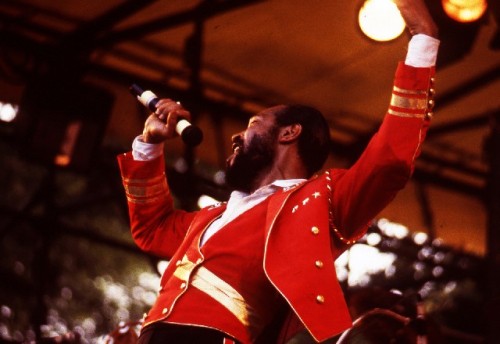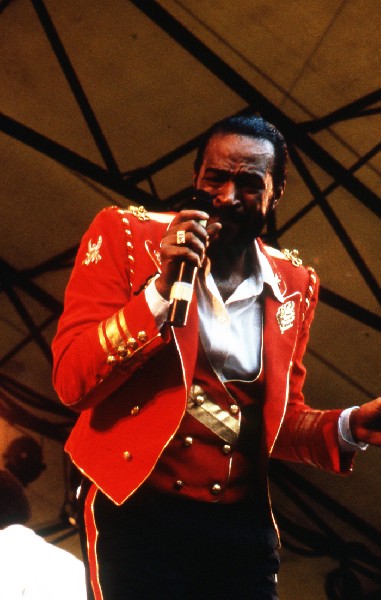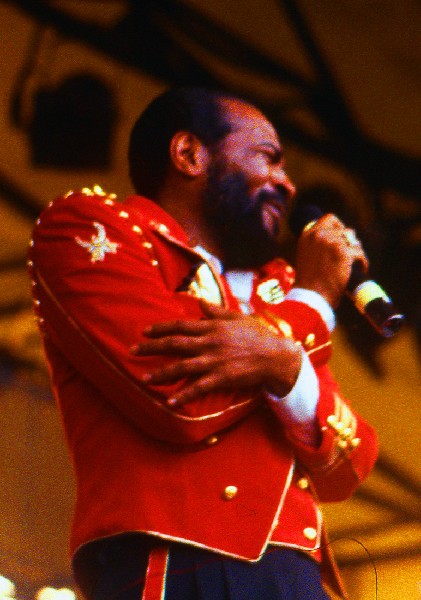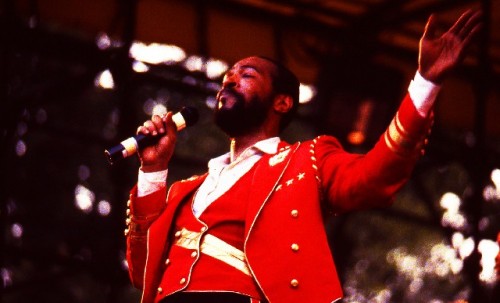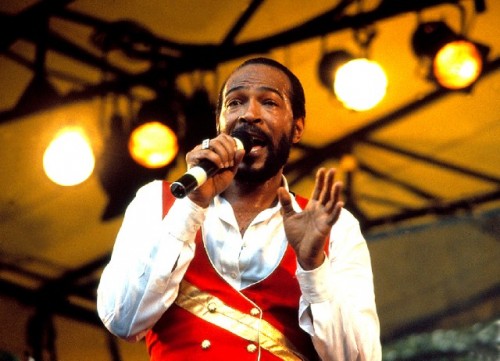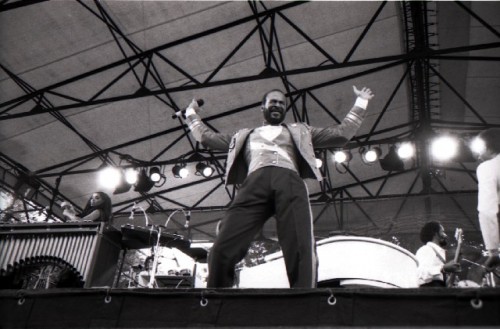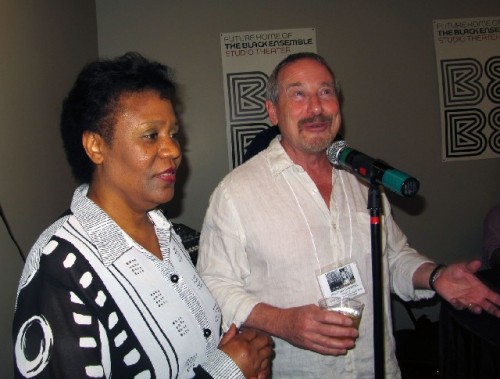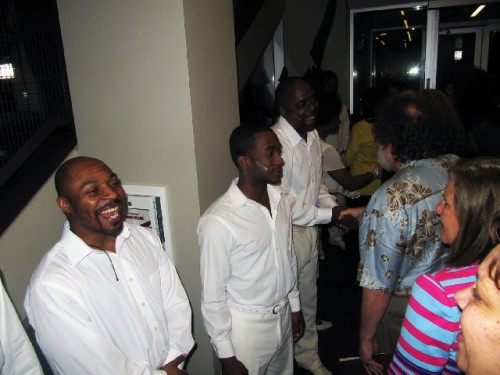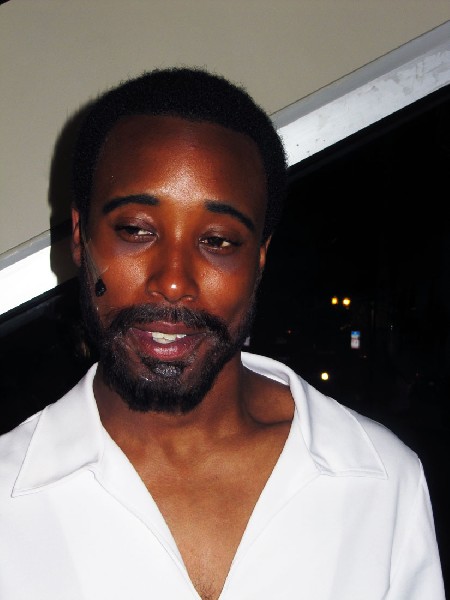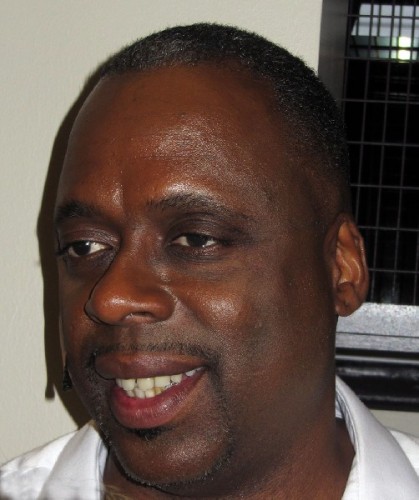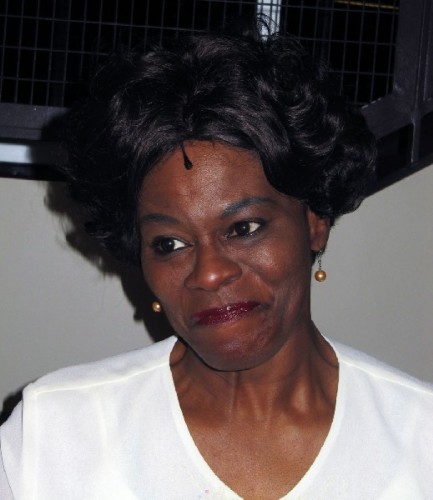Marvin Gaye Rocks Chicago
Jackie Taylor’s Black Ensemble Theater
By: Charles Giuliano - Jun 19, 2012
The Marvin Gaye Story: Don’t Talk About My Father Because God Is My Friend
Written, Produced, and Directed by Jackie Taylor
Robert Reddrick Music Director/ Drummer/ Arranger with Bill McFarland, Trombone; Paul Howard, Trumpet; Herb Walker, Guitar; Mark Moultrup, Keyboard; Tracey Anita Baker, Bass; Dudley Owens, Tenor Sax
Lighting Designer, Denise Karczewski; Carl Ulaszek, Set Design; Les Spires/ Mike Pierce, Sound Design; Evelyn Danner, Seamstress/ Wardrobe.
Cast: Rashawn Thompson (Marvin Gaye), Yahdina U-Deen (Alberta Gaye), Donald Barnes (Marvin Gaye, Sr.), Lawrence Williams (Frankie Gaye), Melanie McCullough (Tammi Terrell/ Janis Gaye) and ensemble.
Black Ensemble Theater
4450 N. Clark Street
Chicago, Illinois
Through July 29
Running Time: Two hours and thirty five minutes
Chicago’s newest 299 seat theater opened with The Jackie Wilson Story in the $19 million Black Ensemble Theatre last November. It follows with another musical revue based on a deceased soul singer The Marvin Gaye Story: Don’t Talk About My Father Because God Is My Friend. It is scheduled to end on July 29 but based on ticket sales may be extended through the summer.
In September another soul compilation is scheduled. One Name Only (A Tribute to the Ladies of Soul) with thumbnails of Aretha, Gladys, Patti, Diana, and Chaka. If you need last names for these soul divas, well, maybe this programming is not for you.
Although the project is well along, artistic director and force of nature, Jackie Taylor, commented during a pre show dinner for delegates to the American Theatre Critics Association convention, “We’ll be adding Whitney.” As in the recently deceased Houston if you have to ask.
Hey Jackie, sister, you go girl.
Consider. She built the multi purpose facility with a main stage and second stage, studios for teaching theater and dance, and a gallery for special exhibitions. But that’s not all. She also writes, produces, and directs the musicals presented in a theatre with a thrust stage, forgive the pun, Taylor made for her vision.
That’s a lot of hats to wear. Based on The Marvin Gaye Story, which has magnificent moments but is rough around the edges, perhaps it is time to delegate or bring in other artistic visions.
Can I hear an Amen.
Her charisma was busting out all over when she informed us that it is one thing to build a $19 million facility for her company and another challenge to keep up with the bills. She discusses her vision of serving up populism as a theatrical version of McDonalds. Avoiding selling subscription seasons and locking into schedules allows for extending money making hit shows. Working with her own company of actors and musicians allows for that flexibility.
There is also a critical mass of demographics in Chicago to support her mandate for populist, soul themed musicals. That was abundantly evident in the show we attended. The black half of the audience, largely female and middle aged, knew the music and were into it from the git go. The white folks lagged behind. By the evening’s mid point they were clapping along to all those great classic songs, for the most part, on the right beat.
Can I hear an Amen.
During the summer of 1983 we attended one of the last performances by Marvin Pentz Gay, Jr. (April 2, 1939 – April 1, 1984). Based on a documentary we saw some time back his life was in shambles culminating in the fatal confrontation with his father.
It was a rare opportunity to see him on stage. He was known for being reluctant to perform, particularly solo. There were long drug fueled retreats. For Boston’s outdoor, twilight appearance as a part of Concerts on the Common, then in his forties, the performance was astonishing.
Now nearly three decades later the man and his remarkable music are etched in my memory. Marvin is gone but with this report I am posting a selection of the images shot that night. Film and processing was expensive and time consuming in the dark room. So I only brought one roll of color and two rolls of black and white.
I had shot my wad when Marvin, ending the show with an extended version of “Sexual Healing,” working the audience into a frenzy, stripped down to his briefs. OMG.
Can I hear an Amen.
All of those feelings and memories came rushing back in the truly amazing performance of the massively talented Rashawn Thompson as Marvin Gaye. After the show the cast formed a receiving line in the lobby. I told Thompson his Marvin Gaye was spot on. There is even a remarkable physical resemblance. Melanie McCullough was equally wonderful as Marvin’s partner Tammi Terrell.
Tammi, a perfect match with Marvin, died young (April 29, 1945 - March 16, 1970). They were both married to others at the time but, as this production conveys, deeply in love. Terrell's career was interrupted after a late 1967 concert resulted in the singer collapsing in the arms of Gaye as the two performed. She was diagnosed with a brain tumor. Terrell would have eight unsuccessful operations.
Gaye was devastated by the loss. In the play he comments that she went blind at the end and nobody should have to suffer like that. Her death at 24 plummeted him into depression and addiction.
Their reenacted performances were truly riveting as the audience grooved with them. Thompson and McCullough are the heart and soul of what should prove to be Chicago’s hottest summer show. Trust me. Chicago in the summer is so hot the sidewalks melt. So if you get the chance fall by this cool show.
That said, yes, as theatre this production is problematic. It soars when Thompson is cut loose with such Gaye standards as “I Heard It Through the Grapevine” the revolutionary industry changing “What’s Going On” “Let’s Get It On” and, of course, “Sexual Healing.” It was pure, ecstatic poetry when he partnered with McCullough for their soaring, chilling, thriller “Ain’t No Mountain High Enough.”
The frustration comes from sorting out if this is a concert of Gaye’s remarkable music or, rather awkwardly, theatre and a story of his complex and tragic life.
The plot advances in fits and starts. Here the design of the theatre and intentionality comes into play. The fine, tight, titubating band is set up at the back of a relatively shallow stage. There are flats with video projections which open and close. But no sets.
So the scenes, between Marvin and his family, manager (for life), record producer Berry Gordy (Motown records' founder, Marvin was married to Berry’s sister), and various tiffs with hos and lovers, become numbingly predictable.
Routinely there is a black out during which furniture and props are brought on stage. A brief dramatic interlude occurs followed by another blackout during which the props are removed. The Taylor made design means that the company is locked into this production conundrum in perpetuity.
When the music soars, as it often did in this hit, you stop being a critic and let the magic zap through. It gets into your bones right down to stomping feet and itchy finger tips.
Oh Marvelous Marvin.
The crowd went wild when the oh so handsome Thompson, a twelve year veteran of the company, left the stage during “Distant Lover” and worked the audience one on one. He would squat in front of a sister, grasp her hands, croon to her, ending with a sexy kiss. The sense of anticipation and hunger for his up tight and personal brand of sexual healing was palpable. The audience just howled with delight as the woman of the moment lost her mind and gave it up for him.
The dramatic tension leading to an effective finale was squandered at the opening of the show. There was a projection of the front page of a newspaper announcing his death. So when that finally happened it was anti climatic.
Followed by Yahdina U-Deen playing Gaye’s tormented mother milking an original song by Taylor “Oh My God” which was sung with power but seemed out of sync with Gaye’s music.
Then, good grief, Marvin dressed in white returns as a heavenly spirit singing the traditional “His Eye Is On Sparrow.” He is joined by the white attired, heavenly ensemble working their way down the aisles to join him on stage.
Saint Marvin! Please. Marvin ain’t no saint.
But in his memory it surely was an evening of heavenly music.

